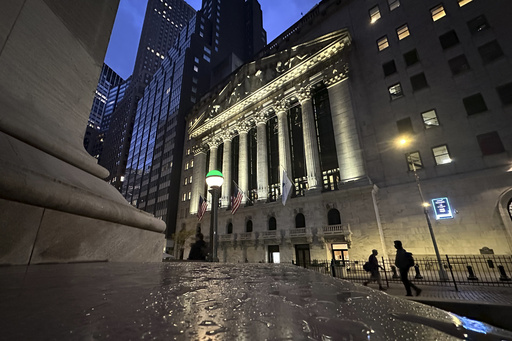
HONG KONG — Asian stock markets showed varied performance on Wednesday, with Japan’s primary index rising over 1% thanks to a surge in technology stocks that boosted the Nasdaq composite to a historical peak.
In contrast, Hong Kong’s Hang Seng index fell by 1.3%, reaching 20,438.54, while the Shanghai Composite index experienced a 0.6% decrease to 3,267.42. Tokyo’s Nikkei 225 climbed 1.3% to sit at 39,390.49 as the Bank of Japan initiated a two-day policy meeting.
Australia’s S&P/ASX 200 saw a decline of 0.9%, settling at 8,177.90, attributed to a third-quarter inflation rate that dipped to 2.8%, the lowest recorded in over three years, according to the Australian Bureau of Statistics.
Meanwhile, South Korea’s Kospi dropped 0.8% to 2,596.61, while Taiwan’s Taiex managed to inch up by 0.1%. Additionally, U.S. futures and oil prices showed an upward trend.
On Tuesday, the S&P 500 marked a slight increase of 0.2%, landing at 5,832.92. Major tech stocks buoyed these results, overshadowing weaknesses elsewhere, leading to a 0.8% rise in the Nasdaq composite to 18,712.75. Conversely, the Dow Jones Industrial Average registered a decline of 0.4%, concluding at 42,233.05.
A steady rise in mortgage rates has been observed as the 10-year Treasury yield continues to climb.
These yield increases are a result of ongoing reports indicating stronger-than-anticipated performance from the U.S. economy. Recent data released on Tuesday highlighted a sharper-than-expected rise in consumer confidence, alongside a slight decrease in job openings for September; however, hiring figures remained stable.
Such economic indicators have prompted traders to recalibrate their forecasts regarding potential interest rate cuts by the Federal Reserve, which is now more concerned with maintaining economic momentum alongside controlling inflation. According to data from CME Group, there are even slight expectations that the Fed may retain its main interest rate during its upcoming meeting.
This comes on the heels of the Fed launching its rate-cutting initiative last month with a significant reduction. A month prior, many traders anticipated the Fed would follow up with another substantial cut in November.
The uptick in yields has also been influenced by perceptions surrounding former President Donald Trump’s re-election prospects, which economists believe could contribute to long-term inflation growth and subsequently increase interest rates.
Shares of Trump Media & Technology Group, which tend to correlate closely with Trump’s electoral odds rather than its own financial outlook, surged by 8.8% to reach $51.51 on Tuesday. The stock’s value fluctuated so dramatically during the trading session that trading was temporarily suspended multiple times. The company’s stock has been on a steady rise since hitting around $12 in late September.
Historically, like stocks, Treasury yields have been prone to volatility leading up to Election Day but tend to stabilize afterward regardless of the victorious party.
In early trading on Thursday, U.S. benchmark crude oil rose by 36 cents, reaching $67.57 per barrel on the New York Mercantile Exchange.
Brent crude, the global benchmark, also increased by 36 cents, reaching $71.09 per barrel.
Meanwhile, the dollar experienced a slight dip, decreasing to 153.31 Japanese yen from the previous 153.36 yen. The euro also fell to $1.0814, down from $1.0819.
